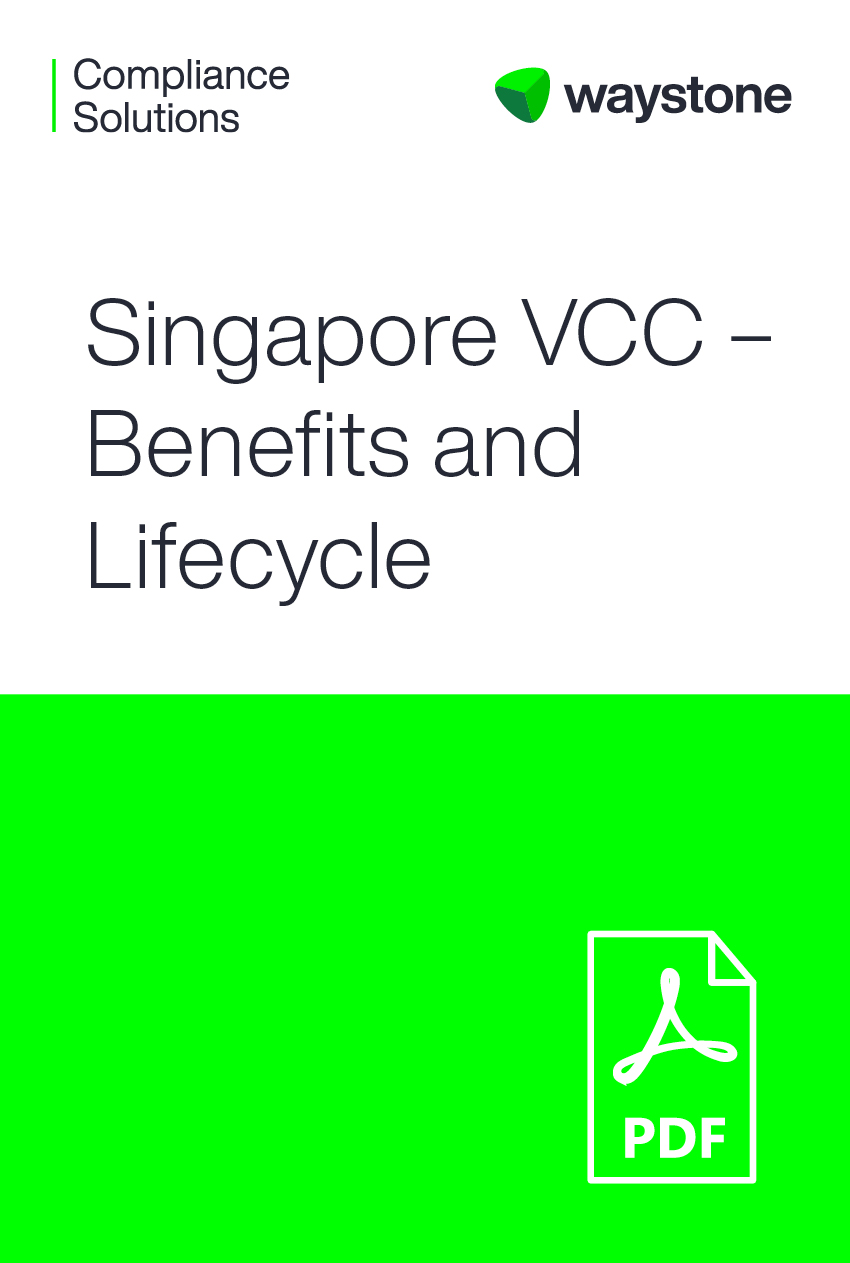
Variable Capital Company FAQs
Singapore introduced an alternative fund framework, Variable Capital Company (VCC), to encourage more funds to be domiciled in Singapore and enhance the jurisdiction’s value as an international fund management centre. The VCC came into operation in Singapore on 14 January 2020 and it allows the set up of collective investment schemes, whether open-end or closed-end. The VCC provides an alternative to Singapore’s existing structures, namely, unit trusts, limited partnerships, limited liability partnerships and companies.
The Variable Capital Company (VCC) is a new corporate structure for investment funds constituted under the Variable Capital Companies Act which took effect on 14 Jan 2020. The VCC will complement the existing suite of investment fund structures available in Singapore.
Please see the article below written by our team for more Variable Capital Company FAQs:
Singapore’s new fund structure – requirements for the Variable Capital Company (VCC)
The Variable Capital Company (VCC) allows set up of collective investment schemes, whether open-end or closed-end, whether retail or non-retail.
Please see the article below written by our team for more details:
Singapore’s new fund structure – requirements for the Variable Capital Company (VCC)
There are many differences however, the most significant is that capital of VCC will always be equal to its net assets therefore providing flexibility in the distribution and reduction of capital. VCCs may issue shares and redeem fully-paid (and not unpaid) shares without the need for shareholders’ approval and no solvency tests are needed. This facilitates seamless movement of capital and enhances the efficiency of an investment fund structured as a VCC.
Please see the article below written by our team for more details:
Singapore’s new fund structure – requirements for the Variable Capital Company (VCC)
No – a VCC must have a MAS licensed, registered, or exempted fund manager to manage the assets that comprises of the VCC. Please see the link to our article and infographic which gives the detailed requirements and differentiation between the various types of fund management regime in Singapore.
Singapore Fund Management Company – Inception to Ongoing Fund Management Compliance
VCCs offer improved operational and tax efficiency and can be used for a variety of investment strategies including hedge funds, private equity and real estate funds.
A VCC can provide investors with the benefit of access to Singapore’s tax incentive schemes, such as the Enhanced-Tier Fund and Singapore Resident Fund Schemes. Assets are not subject to capital gains or income tax (subject to qualifications). In addition, dividends paid to investors in Singapore are tax-free according to Singapore tax law, assuming the investor is a tax resident in Singapore. If the investor is tax resident elsewhere, the dividends may be subject to tax in that jurisdiction.

Singapore VCC – Benefits and Lifecycle
Singapore’s Variable Capital Company (VCC) is a flexible corporate structure designed to enhance the country’s position as a global fund management hub. This guide explores the benefits, regulatory requirements, and lifecycle of a VCC, offering insights into its role in investment fund structures.
This guide covers:
- what a VCC is and how it differs from other fund structures
- steps to establish and operate a VCC in Singapore
- the benefits of VCCs, including tax advantages and investment flexibility
- the lifecycle of a VCC, from incorporation to fund management and compliance.
Download the guide here:
How can Waystone help?
Waystone is a leading global provider of institutional governance, administration, risk, and compliance services to the asset management and financial services industry. Our global Compliance Solutions team helps clients navigate the regulatory landscape with confidence, aligning investment strategies and operational processes with compliance requirements. With over 100 compliance specialists based across Asia, the Middle East, Europe, and North America, we offer a comprehensive range of solutions, from company registration and licensing to compliance programmes and ongoing support.
In Singapore and Hong Kong, Waystone brings over 25 years of experience, working with clients regulated by the Monetary Authority of Singapore and the Securities and Futures Commission. Our team is well-equipped to provide bespoke, risk-focused, and cost-effective solutions. With extensive experience, we deliver the expertise you need while adding value to your corporate governance standards.
If you would like to discuss the themes raised in this guide with one of our APAC Compliance Solutions team members and learn how we can assist you, please contact us using the details below.